Alumni Reading Groups
PPE Alumni Reading Group
The PPE Program is happy to announce a brand new opportunity for our PPE Program Alums! The PPE Program Reading Groups have been a staple of our programming for many years, and now we want to expand its reach to our alumni.
Spend seven weeks reading and talking about an important PPE book (description below) with an exciting group of PPE alumni and a discussion leader. The group is open to all UNC PPE alumni who are eager and able to meet for 6-8 weeks.
The PPE Program will provide copies of the books to all selected participants and an engaging group leader.
GROUP DESCRIPTIONS
Sustaining Democracy: What We Owe to the Other Side
By Robert B. Talisse
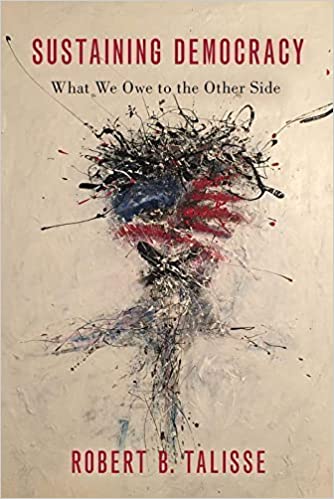
Semester: Fall 2022
Group Leader: Delaney Thull, Affiliated Grad Student
We'll read Robert Talisse's 2021 book Sustaining Democracy. He argues that we have robust reasons to continue engaging with our political foes, even if we think they are making deep moral mistakes. Is polarization a problem even for cases of political agreement? Does it matter if we stop talking to those with whom we disagree? If mutual respect has broken down, why should we nonetheless persist in promoting democratic engagement? We'll devote some time and space to figuring out our moral and political obligations under polarization, and to considering arguments for why strife-filled democracy is nonetheless worth it.
What Should We Do? A Theory of Civic Life
By Peter Levine
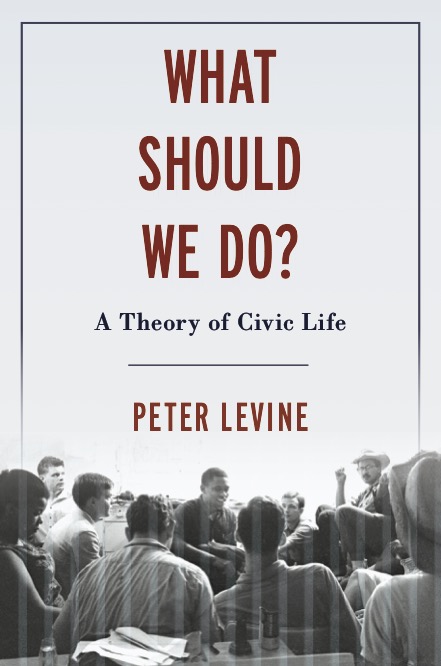
Semester: Spring 2022
Group Leader: Samuel Schmitt, Affiliated Graduate Student
People who want to improve the world must ask the fundamental civic question: “What should we do?” Although their specific challenges and topics are enormously diverse, they often encounter problems of collective action (how to get many individuals to act in concert), of discourse (how to talk and think well about contentious matters) and of exclusion. To get things done, they must form or join and sustain functional groups, and through them, develop skills and virtues that help them to be effective and responsible civic actors. Elinor Ostrom and the Bloomington School of political economy demonstrate that collective-action problems can be solved and suggest “design principles” that increase the odds of success. Jürgen Habermas argues that people can deliberate; experiments with deliberative democracy offer insights about what makes these conversations go well. Gandhi and Martin Luther King Jr. offer models of nonviolent social movements that indicate how to address problems of exclusion. Good civic action requires insights from these three traditions of theory and practice. We need a synthesis of the three traditions that also addresses the challenge of scale: how to preserve intentional, ethical, collective action when millions or billions of people are involved.
This reading group has the exciting opportunity to read Prof. Levine's book before it is published. Discussions will focus both the arguments of the book and its implications for today. Further, we'll generate questions for the author and for future readers of the text. This is sure to provide exceptional opportunities for discussion as we work through an important new work on the eve of its publication.
Love Your Enemies: How Decent People Can Save America from the Culture of Contempt
By Arthur Brooks
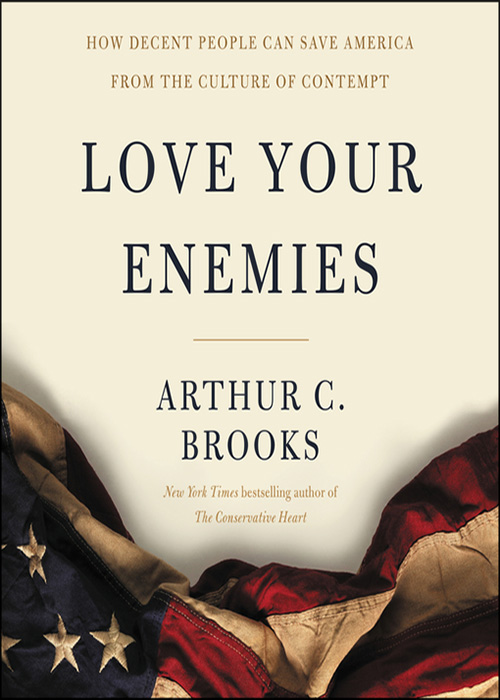
Semester: Fall 2021
Group Leader: Jason Roberts, Faculty
In a time of increasing political and cultural polarization, Arthur Brooks’ Love Your Enemies calls neither for abuse and outrage nor for mushy moderation but for decency, integrity, and honest disagreement.Love Your Enemies brings both contemporary behavioral science and ancient philosophy to bear upon questions not just of civic cooperation but of interpersonal love that transcends differences. Love Your Enemies asks important, relevant questions during these fraught times.
Grandstanding: The Use and Abuse of Moral Talk
By Justin Tosi and Brandon Warmke
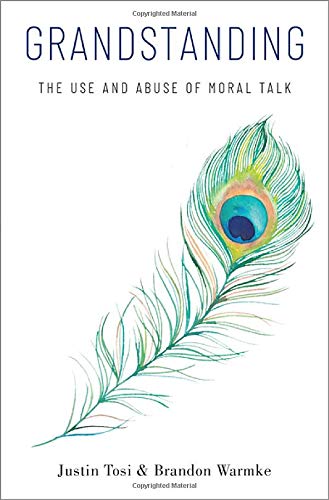
Semester: Spring 2021
Group Leader: Alexandra Oprea, Faculty
As human beings, we can’t help but talk about morality and politics. And democratic institutions depend on our doing so without resorting to violence. Yet many of these conversations go terribly wrong. What can we do to improve the quality of our moral discussions, both in person and through social media? This excellent new book by philosophers Justin Tosi and Brandon Warmke provides an in-depth analysis of one all-too-common aspect of moral talk: grandstanding. Grandstanding is a type of moral showing off that we do because we seek recognition and respect for being morally good people. The authors argue that it is psychologically understandable for individuals to grandstand, but that the (collective) consequences can nevertheless be pernicious. The book documents the costs of grandstanding and makes the case for reigning it in. In doing so, the authors draw on research in psychology, philosophy, political science, and economics. Our reading group will join the authors in discussing polarization, outrage exhaustion, cynicism, the deflation of moral terms, widespread disregard for truth, and what, if anything, we ought to do about it.
Locking Up Our Own: Crime and Punishment in Black America
By James Forman, Jr.
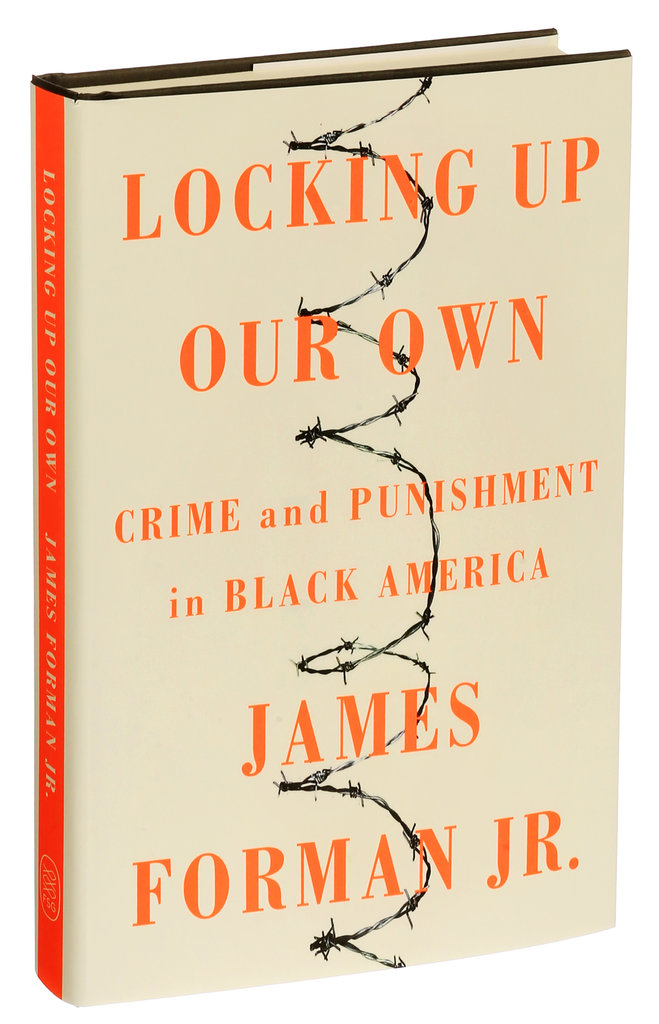
Semester: Fall 2020
Group Leader: Alexandru Marcoci, Teaching Assistant Professor
The United States imprisons more people per capita than any other country in the world. There are currently 2.3 million people locked up in state and federal prisons, juvenile correctional facilities, local jails, immigration detention facilities, Indian Country jails as well as in military prisons, civil commitment centers, state psychiatric hospitals, and prisons. This represents over 20% of the world's prison population. Mass incarceration is partly the result of surging rates of incarceration among African-Americans. Because of this, many see the criminal justice system, in its current form, as a new system of racial control.
In Locking Up Our Own, James Forman Jr. documents the birth of mass incarceration in the United States and the support early punitive measures had from many African-American leaders in the nation’s urban centers. A former D.C. public defender, Forman tells the stories of politicians, community activists, police officers, defendants, and crime victims. He presents individuals trapped in terrible dilemmas — from the men and women he represented in court to officials struggling to respond to a public safety emergency. Locking Up Our Own invites the reader to reflect on the moral legitimacy of mass incarceration and draws lessons about the future of racial justice in the United States.
